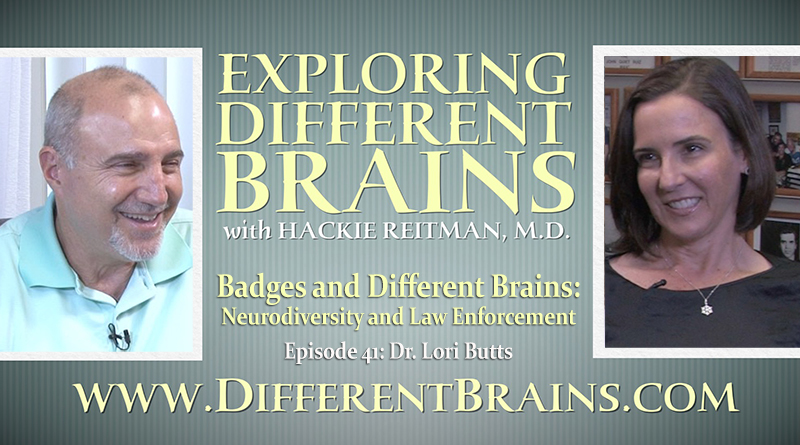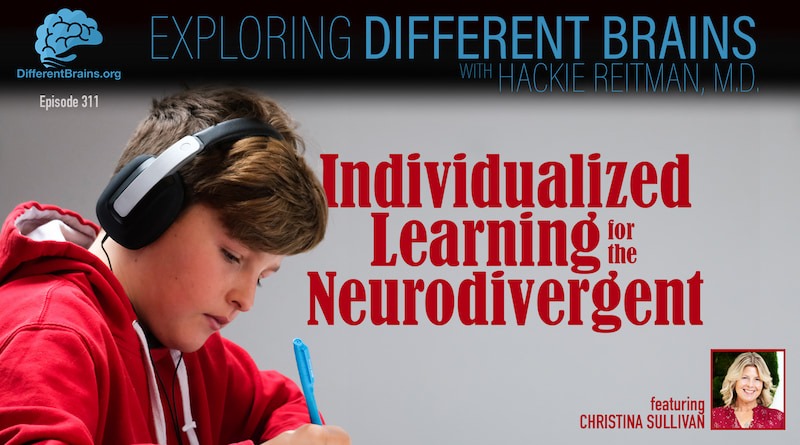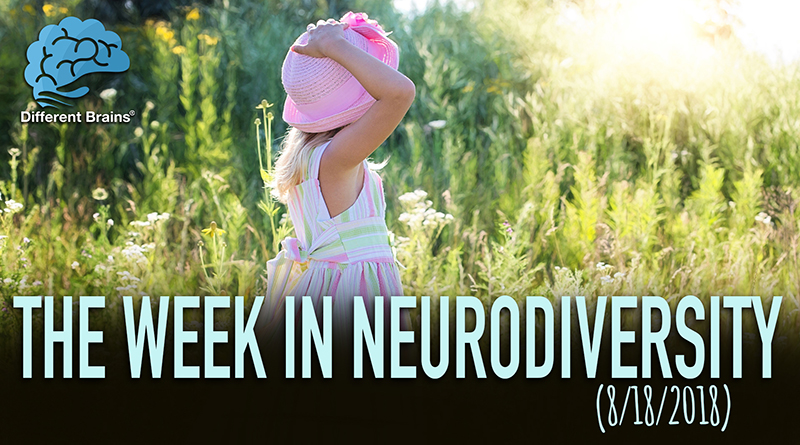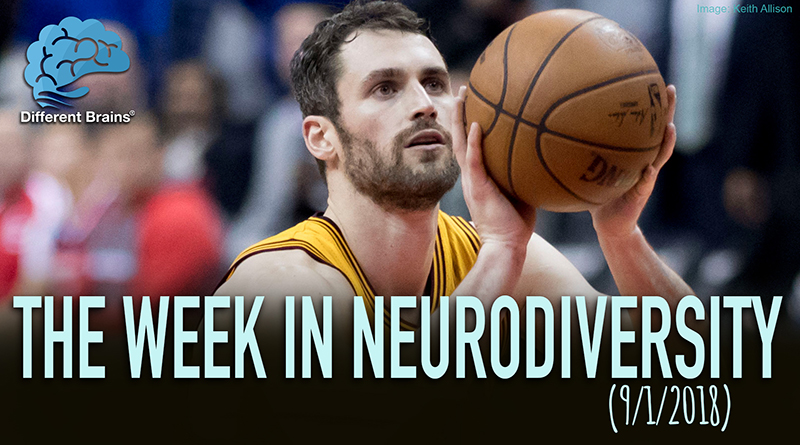
Badges and Different Brains: Neurodiversity and Law Enforcement with Dr. Lori Butts | EDB 41
In this episode, Harold Reitman, M.D. speaks with Lori Butts, J.D., Ph.D., the president and director of the Clinical & Forensic Institute, and previous president of the Florida Psychological Association. Dr. Butts discusses spreading awareness through the justice system, the challenges of offering therapy to both victims and victimizers, and the psychological factors behind the use of lethal force.
For more on Dr. Butts, visit: CFIexperts.com
98 Second Preview:
To listen or download the podcast version of this episode, see the embedded player below.
Or look for us on your favorite podcast provider:
iTunes | Stitcher | SoundCloud
[expand title=”View Full Transcript”]
HACKIE REITMAN, M.D. (HR):
Hi, I’m Dr. Hackie Reitman. Welcome to another episode of Exploring Different Brains. Today, we’re lucky to have in the studio, my friend Dr. Lori Butts. Lori is the founder of the Clinical and Forensic institute Incorporated. She’s a past president of the Florida Psychological Association and she’s one of the few people who has both a degree in psychology and also a law degree also. She does extensive work in the prison system and the justice system, and I’m really looking forward to speaking with her, even though I know her for a long time. Lori, welcome to Exploring Different Brains.
LORI BUTTS, J.D., Ph.D. (LB):
Thank you. I’m really happy to be here.
HR:
Thanks for being here. Why don’t you introduce yourself, from your point of view, to our audience?
LB:
I’m a lawyer and a psychologist. I mainly practice as a clinical and forensic psychologist, which means I treat people. Clinical psychology is treating people with mental disorders or having different problems or things like that. And forensic psychology is where law and psychology meet. So it’s mainly doing assessments for people that have allegedly committed criminal crimes, helping decide what kind of sentencing people may or may need, what kind of treatment people need in the criminal justice system; assisting judges or defense attorneys or prosecutors with understanding what’s going on with defendants and cases.
HR:
How did you get into all that?
LB:
That’s a great question. I was an undergrad. I–actually, I started at an undergrad with an interest in teaching, and then from teaching it went to psychology and I was in the honors program at Clemson University and when it was–over the course of my psychology career and undergrad, I decided that I wanted to look into places where law and psychology met, and there were really only two programs in the country at the time–where you could get a law degree and a PhD in clinical psychology at the same time. It was at Hahnemann University and Villanova School of Law. It’s now at Drexler University. And so basically, I couldn’t decide. Both the legal system and psychology were very fascinating to me. And just as my education went on, my path kind of led me in directions–and I always thought I would be practicing law at this point in time in my career, Until I met Dr. John Spencer, who was my mentor and I started working with him and I’ve never left the organization since. Unfortunately, he passed away in 2005. But he really shaped my career and mentored me because he was a brilliant forensic psychologist–and clinical psychologist.
HR:
You consider your specialty where the intersection of the legal profession meets–and justice system–meets the psychological profession? Or how would you–
LB:
Yeah, I think that’s a good way to put it, sure. I mean, I have a few specialties, but that’s certainly one of them.
HR:
What are some of the other specialties you do, if you care to share?
LB:
I deal a lot with people with trauma. So with people that have been both victimized and abusers. So people that have been victims of abuse and people who have perpetrated abuse.
HR:
Do you find yourself discriminating? In other words, I was an orthopedic surgeon, I remember at Boston City Hospital when I was chief resident there, it was like a mash unit, and I remember, one day, they brought in a policeman who had been thrown off a roof by the perpetrators. Like broke a lot of bones and was very much hurt. And then they brought in the guy who did it, who had a broken arm, and I was always trained–you know, the Hippocratic Oath, you don’t discriminate. You’re there to take care of both of them. Do you find that a challenge? Because you’re treating some of the high-profile abusers and perpetrators, because I’ve read some of these pretty famous cases you’ve been on, and you also treat the victims. So how does that sit with you? Is that a problem or not really?
LB:
No, it’s not–I wouldn’t call it a problem, and also, those aren’t mutually exclusive, right? So people who have committed and perpetrated heinous crimes, a lot of them have histories of being victims themselves. So it’s not–you know, it’s not black and white–it’s not one or the other. I mean, surely, there are plenty of people that do perpetrate heinous crimes that have no history of abuse. That’s pretty rare though. And so I–going into this profession, and there are a lot of people that I speak with that admire people that can treat abusers because they don’t do that because of their internal problems–biases or just uneasy feelings–but I always view it as I feel like I’m helping potential–prevent potential abuse. And I’m helping the community by giving assistance and treatment and all kinds–the necessary things that somebody needs in order to not reoffend–to not perpetrate that abuse again. And so I feel like it’s a higher calling to be able to do that and provide a high level of intervention and treatment to people so that it eventually prevents abuse.
HR:
Not long ago, there was a local story about a caregiver of someone with autism who was shot by a policeman. Apparently they were in the street, and the autistic individual he was caring for was rather difficult, and what’s been your experience with educating law enforcement, what you see as the parts of the equation that we didn’t get from that story, and how you see things evolving going forward?
LB:
I think that one of the keys is police officers are hyper-vigilant and they have–they’ve got a heightened arousal. And so they’re perceiving, so their perception in that heightened arousal state, is they’re trained to be viewing things as threatening. And so if your brain is trained and on high-alert to see things as threats, it’s more likely you’re going to perceive the threat. Just like if your brain is more relaxed and more happy, you’re going to perceive things as more positive around you. So you’re pre-disposed to seek, you know, to seek out things in your environment. So I think, you know, it’s going to be a difficult task–but I think if you give the law enforcement skills and strategies to breathing techniques or strategies to kind of reduce that arousal response, so that they can view things–you know, not be so quick to view things as threatening, but then, on the other hand, I’m sure the law enforcement is going to say, but I have to protect my life. So that’s a really hard balance.
From their perspective is they’re in a life-threatening situation, their arousal is really high. they’re trained to see the threat and to reduce threats and to also be breathing and calm and to be able to assess this situation, well, maybe it’s not as threatening, and were talking milliseconds. I mean, were talking–these–your brain is assessing the situation in such a rapid–and we can watch videos over and over and over again, but in real-world, that’s a minute–you know that’s a quick assessment, and your life is on the line. So we’ve got to really find ways to balance out–to support law enforcement, so they don’t feel threatened all of the time, which, considering what happened in Dallas, I don’t know how we get there, from their perspective, but to get realistic appraisals of the situations.
HR:
I know that you’ve been involved with some of the actual training of law enforcement. How do you see the adequacy or inadequacy of the training of law enforcement? For instance, I’m an M.D. Doctors get zip, zero training in neurodiversity and different kinds of brains. They just don’t. you know? unless you go into psychiatry.
LB:
There are programs now that started within the past–I want to say 5 to 10 years–to have certifications for law enforcement about mental illness to learn about de-escalation. So the answer is it depends–it depends on some officer–so in Broward, we have a Baker Act team, where they’re law enforcement but they’re highly trained in understanding mental illness because they respond to all of the Baker Acts. And so they can de-escalate a situation–it’s a–they work amazing. That’s very different than a patrolman who doesn’t have that training who comes up on a situation where there’s somebody with mental illness, they’ve got–so were talking very–even within departments, not everybody gets the specialized training. Which is intense, its expensive–so, you know, there’s a problem of resources, there’s a problem of what you dedicate–who gets the type of training, how much money you can actually devote as an organization to do that for members of your team. So–
HR:
How would you rate the knowledge of law enforcement in the justice system, at this point, regarding neurodiversity, mental health, overall different brains? How would you?
LB:
Better than 20 years ago, but certainly has a long way to go.
HR:
Understood. Understood. Tell our audience how they can get ahold of you, how they can learn more about what you do, with the websites–what do you want to tell them, if they want to get in ahold of Lori Butts and learn more, what do they do?
LB:
They can go to our website, it’s a mouthful, CFIExperts.com Clinical and Forensical Institute, or just google me. You can find me pretty easily. There’s not too many other Lori Butts as there is psychologists.
HR:
Well, Lori, thank you so much for being here today. It has been great to have you. Thanks for coming in, I know how busy you are and everything else, so–
LB:
My pleasure.
HR:
Thank you very much for appearing with us here at DifferentBrains.com
LB:
Thank you so much, Hackie, it was a pleasure.
[/expand]
This video is owned by Different Brains Inc, kindly donated by it’s original producer PCE Media LLC.
Different Brains® Inc. founder Harold “Hackie” Reitman, M.D. is an author, filmmaker, retired orthopedic surgeon, former professional heavyweight boxer, the past chairman and president (and current board member) of The Boys and Girls Clubs of Broward County, and a neurodiversity advocate. However, it was his role as a father that led to the creation of the DifferentBrains.org website.
Hackie’s daughter Rebecca grew up with epilepsy, 23 vascular brains tumors, and underwent 2 brain surgeries before the age of 5. Her struggles and recovery put him on the road to, through 26 professional heavyweight boxing matches, raising money for children’s charities (to which he donated every fight purse).
Rebecca eventually went on to graduate from Georgia Tech with a degree in Discrete Mathematics, and Dr. Reitman wrote and produced a film based on her experiences there (The Square Root of 2, starring Darby Stanchfield of ABC’s Scandal). After graduation, Rebecca received a diagnosis of Asperger’s syndrome. Hackie, shocked at his own ignorance of the topic despite being an M.D., embarked on years of research that culminated with his book Aspertools: The Practical Guide for Understanding and Embracing Asperger’s, Autism Spectrum Disorders, and Neurodiversity (released by HCI books, publishers of the Chicken Soup for the Soul series).
This experience revealed to Hackie the interconnectedness of the conditions that fall under the neurodiversity umbrella, while alerting him to the in-fighting and fractured relations that often plague the organizations tasked with serving the community. Convinced that overcoming these schisms could help all of society, Hackie forged the Different Brains philosophy of inclusive advocacy: “Supporting Neurodiversity – From Autism to Alzheimer’s and All Brains In Between”.
In the company’s initial years of operation, Hackie self-financed all of the content on DifferentBrains.org, all of which offered free to view to the public. Currently he is the host of our weekly interview show Exploring Different Brains, writes blogs for the site, and tours the country speaking at conferences, conventions and private functions, all with the goal of improving the lives of neurodiverse individuals and their families, and maximizing the potential of those with different brains. Separate from Different Brains, Hackie is the founder and CEO of PCE Media, a media production company focusing on reality based content. He recently co-executive produced the documentary “Foreman”, the definitive feature documentary on legendary boxer and pitchman George Foreman.




